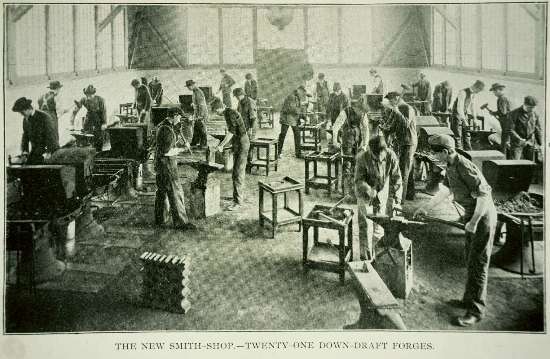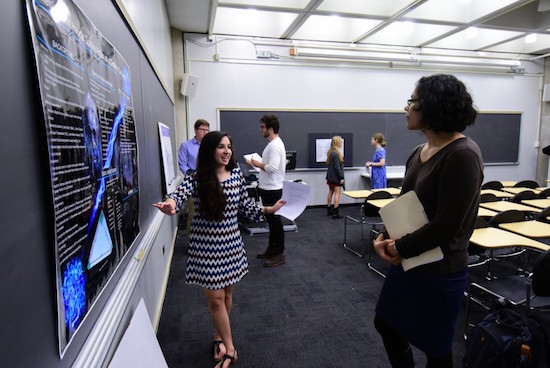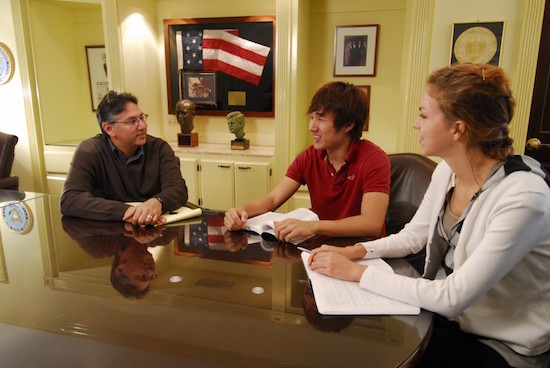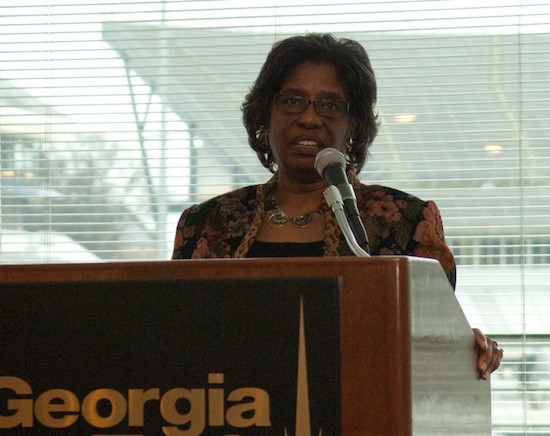In the fall of 1967, amid growing disquietude over war, environmental destruction, dehumanizing technology, and man’s shrinking place in the cosmos, The Technique student newspaper threw a rhetorical brick through the front window of the Georgia Institute of Technology.
“In the age of overkill and napalm, missiles and anti-missiles, moonshots and sonic booms, the unbridled exploitation of science and technology has become a threat to the very existence of the species,” went an editorial in an October 1967 edition calling for a “degree-granting college in the humanities” at Georgia Tech.
“The technicians have shown what they can do,” the editorial continued. “It is now time for the truly educated man capable of making the moral choice to enter the field.”
Toward a 21st Century Technological University
The plea came during an era when faculty and students at Georgia Tech were urgently calling for greater emphasis on the humanities and social sciences to help balance the Institute’s technological focus.
That call, heard time and time again around campus for decades, received a full response in the uncertain years before the dawn of the new millennium, when John P. Crecine — Georgia Tech’s ninth president — called for the creation of a new 21st Century technological university.
“Georgia Tech can become a new form of technological university by adding breadth by broadening our intellectual base, by adding intellectual strength and degree programs in non-technical areas in the behavioral, social, and policy sciences and in the humanities,” Crecine said in his 1988 inaugural address.
“We do this not by becoming a traditional liberal arts college. Far from it!” Crecine said, foreshadowing the Ivan Allen College to come. “We add strength in non-technical areas in ways that dearly build on and complement our core strengths in engineering, science, and technology.”
I have an engineering degree. I came back to school to get the liberal arts degree. The reason for that is the social sciences and the humanities are providing the context and the purpose behind the technical questions.
— Ross Beppler, Ph.D. student in public policy
'Providing the Context’
Today, the result of that vision — the Ivan Allen College of Liberal Arts — has blossomed into a distinctive center of scholarship, where a world-class faculty and world-class students explore the societal implications of new technological advancements.
The college links disciplines as varied as environmental policy, digital media, and international relations with interdisciplinary education and research in computing, engineering and science, producing graduates with a unique lens on the world that incorporates the best of both STEM and liberal arts educations.
“I have an engineering degree. I came back to school to get the liberal arts degree,” said Ross Beppler, who graduated from Clemson in 2014 but is now pursuing a Ph.D. in public policy at Georgia Tech. “The reason for that is the social sciences and the humanities are providing the context and the purpose behind the technical questions.”
“In a lot of cases they are answering the why for me and they are giving me the tools to deal with some of the inherent uncertainty, skepticism, and ambiguity that isn’t always on the surface in an engineering context, where it’s often more black or white, right or wrong, works or doesn’t,” Beppler said.
 ‘The Hands are Here’
‘The Hands are Here’
It was an argument older than the Institute: just how much liberal arts does a technical institution like Georgia Tech need?
When looking for a model on which to base Georgia Tech’s first curriculum, the school settled on the “shop model.” That model, unlike one more focused on education, focused on teaching trades, not scientific theory or the foundations of a classical education, the kind of education one found at that time at the University of Georgia in Athens.
As one of Tech’s founders, state lawmaker and future governor Nathaniel Harris said during opening day ceremonies, “The head is in Athens; the hands are here.”
Research at the Crossroads
How times have changed.
Today, Ivan Allen College boasts a cutting edge research portfolio and 16 research centers. The college has secured more than $50 million in sponsored research over the last decade, including a record $7.4 million in 2017.
The School of Literature, Media, and Communication, is known nationally as an innovator in the humanities where faculty help students connect today's most important scientific and social issues to their historical, cultural and artistic contexts.
 In the School of Public Policy, scholars and students alike seek to define and shape the discourse around global public policies, with research and a curriculum that focus on understanding the global impact of science, technology and innovation on society.
In the School of Public Policy, scholars and students alike seek to define and shape the discourse around global public policies, with research and a curriculum that focus on understanding the global impact of science, technology and innovation on society.
In economics, researchers are pushing to understand the economic costs of climate change prevention efforts, and extending our understanding of poverty in new and exciting ways.
The School of History and Sociology continues to bring the perspective of the social sciences to bear on critical issues facing the modern world, analyzing the origins and impact of technology and science.
In the School of Literature, Media, and Communication, the focus is on leading the region, the nation, and the world in researching and teaching the ways the humanities shape and are shaped by science and technology.
In the School of Modern Languages, faculty reveal connections between languages they teach and Georgia Tech’s engineering and technology focus, helping prepare students for an international workforce.
In the Sam Nunn School of International Affairs, faculty deliver innovative programs and cutting-edge research that integrate technology and the study of international affairs and a greater understanding of factors that shape the world in which we live and work.
 ‘A Special Form of Wisdom’
‘A Special Form of Wisdom’
It is like this across the college, and it is like this because of role liberal arts plays in opening students’ minds, said John Tone, associate dean of the College and the interim chair of the School of Economics.
“They learn to make arguments based on evidence and reason. They have the wonderful experience of having their beliefs challenged. They gain more information about the world than most people do in a lifetime. They acquire a love of learning that makes them life-long learners,” he said.
“Few people are so well equipped to grapple with this complex truth as the graduates of the Ivan Allen College,” Tone said. “This is a special form of wisdom in a world characterized by rapid and deep technological change.”
'Meeting the World'
Liberal arts at Georgia Tech has has grown up differently than at other schools, approaching topics in a much more interdisciplinary way than is common at other colleges. Even the Institute’s founding liberal arts department, English, learned that lesson soon after Tech opened its doors. Within just a few years, it was offering courses in economics, history, and geography, along with English.
The drive to help question, shape, and even drive technological change colors pretty much everything that goes on in the college, said Jacqueline Royster, dean of the Ivan Allen College.
“Liberal arts comes with such tradition behind it, such habits behind it, we really do have to think outside of our own box,” she said.
 Today, the Ivan Allen College is a center for discovery bridging the traditional separation between the technological disciplines and the liberal arts. The college’s interdisciplinary approach links computing, engineering, and science with culturally informed viewpoints and ethically grounded inquiries. From this crossroads, faculty and students consider the implications of policies and actions in the lives of human beings and create sustainable solutions for a better world.
Today, the Ivan Allen College is a center for discovery bridging the traditional separation between the technological disciplines and the liberal arts. The college’s interdisciplinary approach links computing, engineering, and science with culturally informed viewpoints and ethically grounded inquiries. From this crossroads, faculty and students consider the implications of policies and actions in the lives of human beings and create sustainable solutions for a better world.
“We are meeting the world, belly-to-belly face-to-face, head-on, prepared to go forward with the kinds of things that humanists and social scientists ought to be doing in the world,” Royster said.
“That is demonstrating what it means for that centuries-old commitment to advancing human-centered enterprises and doing so with respect for the Earth, with respect to diversity, the fact that he have different histories and cultures that must come to gather on our small blue planet,” she said. “We are ready for that, better here than I've seen anywhere else because we've been thinking about it in those terms much longer.”
